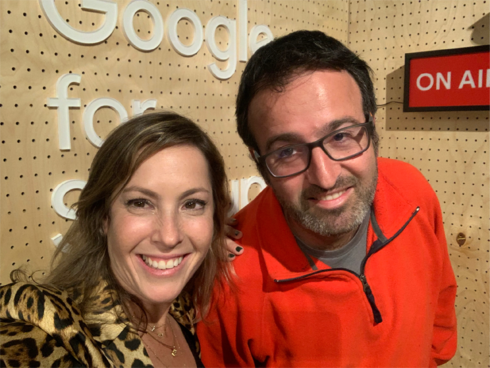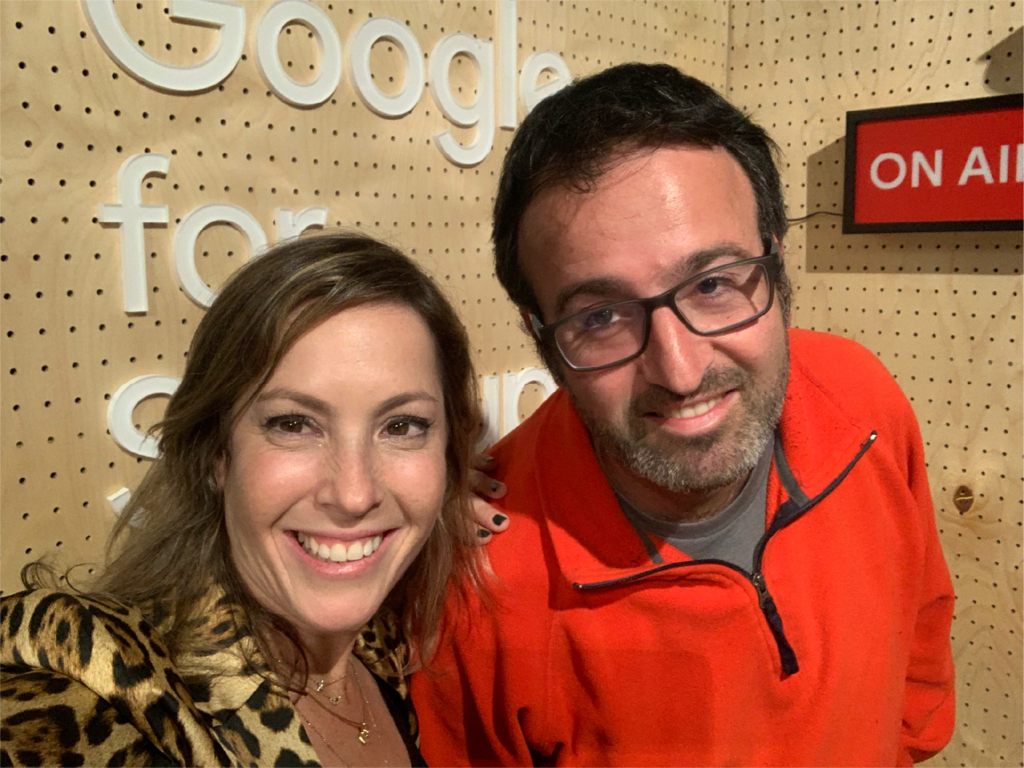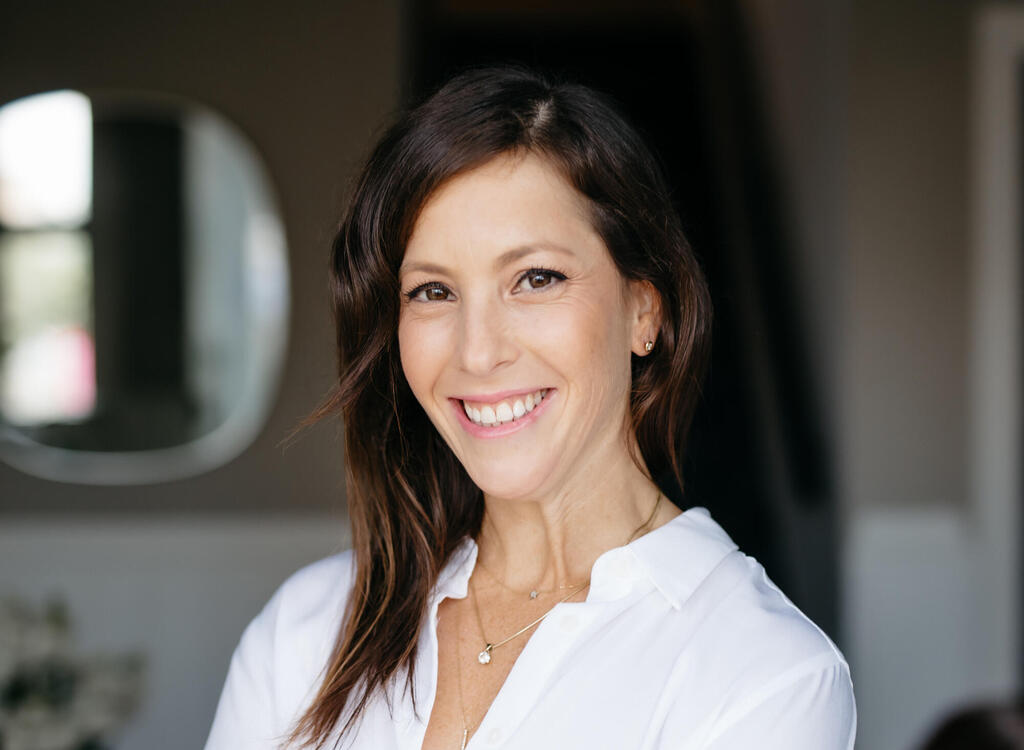
The Human Founder
How can we cope with trauma, change our own algorithms and become better entrepreneurs?
As part of her day job, Executive Coach Gali Bloch Liran helps founders, CEOs, and investors develop the right skills and mentality. Her podcast takes us through the roller coaster of vulnerability, humanity, and the personalities of these "top dogs" of business and tech
Being a founder, not to mention a CEO, can be a very lonely place, carrying loads of stress and requiring constant peak performance. This often makes it hard to find a balance between one's professional and personal life. Maintaining strong relationships with the co-founders and investors is also not an easy task, where clarity and empathy are not always present. As one of my entrepreneurs says: “It’s not the technological challenge we deal with, it’s the mental one.”
“Throughout my +15 years as a professional, I've always been attracted to the intersection of business and psychology through entrepreneurship - What makes people tick? How do people think and act? And what motivates people in business? What drives me is being there for the amazing entrepreneurs, who are under constant pressure, so that they can make our world a better place. That’s what I’m here for, and this is my podcast – The Human Founder.”
Eyal comes from a family of entrepreneurs. His dad, who left home when they were young, was one of the first entrepreneurs in Israel, and his mom was the strong anchor of the house; she was the sole provider for Eyal and his brother Ron and owned several pharmacy stores and a small cosmetic company.
Eyal absorbed the entrepreneurial DNA from their mother, who constantly shared about what goes into running a business, with all its difficulties, achievements, and various aspects that constantly needed to be managed - “It was all around us; both my brother and I grew with this context, so it was easier for us to think in those terms and start our own journeys.”
Our childhoods had immense power in shaping the adults we are today. The events that occurred to us early in life taught us what to expect from life in the future; they created our whole perspective.
Eyal shared about the insights he now has on the effects of his childhood: “Being the first son of such a family when both your father leaves the house and you lose one of your role models in a sense, and in addition, losing our brother to cancer in those exact ages, which now I know are considered the time of personality development, were pretty traumatic. And so, in the future, I had to create a certain personality to deal with uncertainty in life.”
These events also impacted their mother, who was in survival mode as the sole provider, and had no tools for dealing with grief or being a single mom and a sole provider, which also impacted the way they were raised.
It was only recently that he learned these terms and gained more clarity on his own childhood because, back then, there wasn’t a lot of awareness of the effects of trauma.
This last year post his 4th exit was a time for him to revisit all the things he learned from his childhood, and decide which are still relevant for his life now to keep, and which don’t serve him anymore and need to be let go of - “You realize that things that were ingrained in your brain like an algorithm can be tweaked, and you don’t necessarily need the old ones.”
I (Gali) strongly believe in the power of pauses, where we can distance ourselves from our autopilot state and gain clarity on what really drives us and impacts us in the present. From that insightful space we create for ourselves, we can choose what we want to give power to in our lives now, and not be controlled by our past.
Eyal experienced this process through full coaching studies and shared how, learning from that, you can introduce to your own algorithm new sufficient data sets that you want to bring into your life.
You might think this has little to no relevance to your life, but the experience of trauma is much more nuanced than we think.
Eyal shared about the surprising conclusions of research that was conducted on entrepreneurs, where it was discovered that whether the founders had a successful exit or had to close the company, the inner experience of the founders was traumatic in both cases. There’s much more to learn and discover because, as Eyal said - “there isn’t yet a platform or knowledge on how to treat those specific rounders \ teams traumas."
What makes this subject even more complex is the fact that there are aspects that can hurt us and serve us on our entrepreneurial journey at the same time. Sometimes the effects of stress, anxiety, overthinking, trauma, and other mental health challenges or disorders can be surprisingly beneficial for us - “Like when you need the relentlessness to keep knocking on investors' doors, or need to doubt reality when people say “ this can never work “ and keep questioning even when there’s already a ready workflow. At certain points, it does become destructive, especially when you're in scale mode and need to focus on one thing and execute it well , with fewer new ideas and questioning what we already built.”
In conclusion, the symptoms we experience aren’t just good or bad and can be useful tools for us at some stages of our journeys - we just need to be aware of when and where to apply them.
Stress is definitely very prevalent this year, both for us as people and as a part of the ecosystem as a whole. Many investors and founders who were used to success in the past few years are now experiencing a crisis in their algorithms. For the first time, everything they knew and were sure about isn’t enough - new data is coming, and it’s very different from what they expected and were prepared for. It’s difficult to contain it all - for all of us.
With all of that in mind, Eyal emphasized - “If we want to maximize the chances of a certain company being successful and have the founders and their team maintain a sense of sanity and wellbeing (especially in this time), we need to put a lot of emphasis on addressing our personalities, communication, and awareness expansion.”
Finally, I asked Eyal for advice for founders in their seed round. For him, it was very clear - having a group of other peers with whom the founders can share and consult in the most vulnerable and authentic way, because empathy and resilience go hand in hand.
Gali Bloch Liran is the Founder & CEO of The Human Founder; Executive Coach & Startup Advisor; Entrepreneurship Lecturer at Reichman University; Host of The Human Founder Podcast














